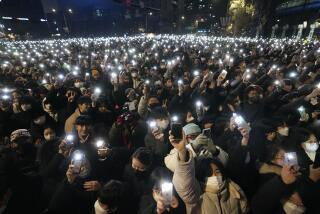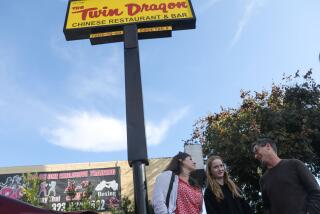Unwrapping a new life in a new world
DALLAS — It was our first Christmas in America, a family of six squeezed into a two-bedroom apartment, donated jackets unpacked, cloth diapers stacked and a starry blue book from Hallmark creased on the page of a carol.
“Joy to the World.”
The lyrics rang in my head, a jingly song of a wonderland that helped us master English — the opening act in the saga of refugee life.
In the thick of winter, we tumbled into foreign holiday traditions, not sure why folks would prefer rice stuffed inside a roasted bird, why gifts would change hands at a “white elephant,” why popcorn would be strung around a prickly tree.
Manger. Midnight. Merry. Faithful. What did it all mean?
My father borrowed an English-language dictionary, and we searched.
The year was 1975, in the aftermath of war when thousands of Vietnamese fled to the United States. Rumpled and wide-eyed, we squeezed into our new home where the red logo of a Target store glowed through our windows in the fading light.
Bo — “Dad” in Vietnamese — worked odd jobs and, some days, as an aide at a Montessori. Ma cared for a toddler son and baby girl while gratefully sorting through boxes of rusty housewares we’d been given.
My sister and I enrolled at St. Rita, a Catholic parish in North Dallas, free for low-income families. I remember our stiffly ironed uniforms and the paleness of the boys who used words like “Holy Spirit” and “spurs” and doodled in their spiral tablets between prayers.
I picked up more nouns and verbs when class ended, as we combed used picture books and memorized the bouncy Christmas tunes blaring from eight-track tapes.
Coming from Saigon, where we did not celebrate on Dec. 25, we turned to those around us for guidance. One teacher gave me twinkling dots she called glitter to decorate a red felt stocking with our names. “A-n-h is not easy to remember,” she advised, in what would become a familiar refrain. “Change it to A-n-n.”
Inside the school on Inwood Road, another teacher with a loud drawl read us stories about creatures transforming to life in cold weather, dancing before melting, and I retold them to my little brother, explaining to him that Ma might buy us hand socks called “mittens.”
When the first snow fell, sparkling in the thin air, we rushed to peer through our patio door. “Bo,” we asked, “what is it?”
We bundled up in coats, marveling at fabric that could keep skiers (another new word) dry, filing outside, scooping the icy powder with our fingers to taste. My mother stayed inside, attending to our baby sister Lin, born at Parkland Memorial Hospital, the first in the family to be a U.S. citizen.
At night, the eaves of our housing complex lit up in multicolored lights.
::
Along Montfort Drive near the Galleria shops, an archway framing a sand-colored building leads straight to the stairs. I climbed them, and knocked at the door. Apt. 204. I hadn’t been here in more than 35 years.
Tony Villalobos lives in our old home now with his wife, son, a brother-in-law and the brother-in-law’s entire family. He is from Honduras, an immigrant as we were. His neighbors are newcomers, too — from Mexico, Costa Rica, Kenya.
In the same corner of the living room where Bo first propped up a tiny Christmas tree, there was a slim plastic fir bearing red tinsel. His 2-year-old son, David, scooted around on a Big Wheel, then grabbed his father’s cellphone, wiggling to J. Lo and Zoe, a Mexican psychedelic band.
There’s no need for the boy to practice English yet, Villalobos said. “In this country, unlike my country, we can speak any language we feel comfortable with, even when we are older.”
In Spanish, he described America as “friendly to immigrants if they are willing to copy the footsteps of immigrants arriving before them and take any work.”
He is a house painter. His wife, Ingrid, spends her days working as a nanny. As we recounted how our families crossed different borders to get to Dallas, and the extended families we left behind, we talked about the food we missed the most.
At the start of that first holiday season, the Wilsons, our American sponsors who plucked my father from a refugee camp in Northern California, gave us a turkey dinner with all the trimmings.
I recalled the conversation at that dinner.
“I think the skin is too salty.”
“Wouldn’t it be better flavored with fish sauce?”
“Do American people really eat this every year?”
The verdict was unanimous: Not as good as the fried chicken served at the refugee camp. We left most of the pumpkin pie untouched.
::
Outside, I sat in my rented Chevy, tears streaming.
All my memories of coming to America are wrapped up in this one place, this one city. Bo’s decision to bring us here, to join his cousin, my aunt’s family, changed the trajectory of our lives.
In his mind the great wide openness of Texas would force us to stand on our own, rather than fall back on the safety net of California, where our sponsor had found him a job washing dishes.
Bo is no longer with us, though stepping again into the Lone Star State — its vastness — makes me long for him. Moving here proved to be his gift to us, infusing a love for exploration, a push to find our own way in our adopted country.
That first December, the kindness of strangers helped us through. One family from church gave us a castaway Buick, which carried us to school, church and the supermarket, where we roamed the aisles, smelling muffins and marveling at rows of gleaming fruit.
Dorothy Wilson, our sponsor’s wife, gave us a slip of paper, strange to our eyes. A gift certificate. The logo read JCPenney. We had never been to a department store.
Once there, my mother passed the fancy dress displays before deciding on two pairs of pink flannel pajamas for my sister and me.
Driving back, Bo couldn’t figure out how to operate the electric windows of the Buick. The freezing wind blew through the car, and we leaned together to keep warm. The tiniest had a cold by the next day.
In the evenings, my sister, brother and I sucked on candy canes, coloring the pictures I had traced from the Christmas songbook in gold and green.
In the background, the lilting carols played.
More to Read
Start your day right
Sign up for Essential California for news, features and recommendations from the L.A. Times and beyond in your inbox six days a week.
You may occasionally receive promotional content from the Los Angeles Times.







